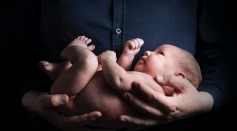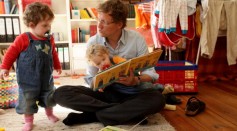Child Development

Phthalates: Plastic Chemicals Damaging Babies' Brains
Is Milk Really Good For You? Here's What Scientists Say

Routine: Less Is Often More When It Comes To Children's Development

Mental Health: Questions To Ask Your Children

Dietary Supplement, Currently Used For Sexual Enhancement, Could Be Fatal For The Kids

Students With Reading & Spelling Difficulties, Need Effective Special Education As They Lag Behind Other Peers In School

Breastfeeding A Kid Makes Them Less Hyper But Not Smarter

Early Autism Diagnosis Study Reveals An Unexpected Outcome

Monopoly Dumps 'Thimble' The Iconic Game Token

First-Born Babies Have Higher IQ & Intelligence Than Their Younger Siblings

Picky-eating kids are at risk of mental problems

SIDS Risk Linked to Elevation
Google and NASA Join Forces to Inspire Girls Into Science
Educated Women Likely to Have More Children
Most Popular

1,029-Foot Asteroid To Make Close Approach Toward Earth at Breakneck Speed This Week

Human Jawbone Found in Kitchen Floor Tile Turns Out To Be Remains of Extinct Hominin Species

Eutrophication Explained: Here's What Happens When Bodies of Water Get Overly Enriched With Nutrients

Citizen Scientists Identify New Sample of Over 1,000 Hidden Asteroids in Hubble’s Archival Data






